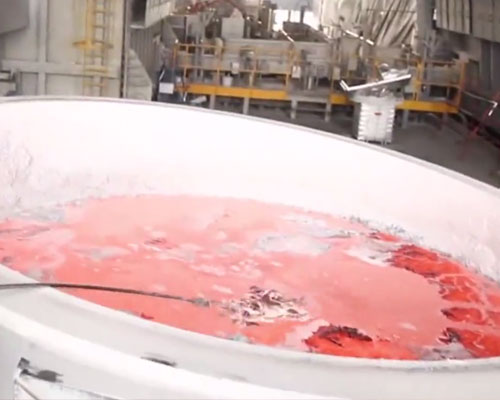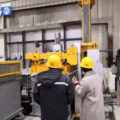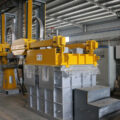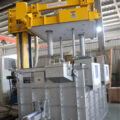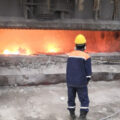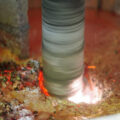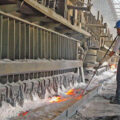Molten Metal Cleanliness is one of the major challenges for most foundries. They have to produce slabs that contain enough hydrogen, alkali metals (mainly sodium) and inclusions to make the final product suitable for its end-use. This is particularly important when the slab is rolled into thin sheets used to make beverage cans or foils.
The Molten Metal Cleanliness needs to be properly managed in conjunction with the correct equipment and ensuring proper operation.
Initial Molten Metal Cleanliness
First, it must be ensured that the melting and holding practices used before casting are as close to best practices as possible. The higher the cleanliness of the molten metal before degassing and filtration, the higher the cleanliness after treatment. Some of the key areas that usually require careful management are:
- Purchase primary metals, hardener materials, and scrap from proven/qualified sources.
- Adding alloying elements (especially magnesium) at the right temperature.
- Degrease thoroughly and clean furnace regularly.
- Take appropriate solutions.
- Minimize mental turbulence, especially in transfer tanks.
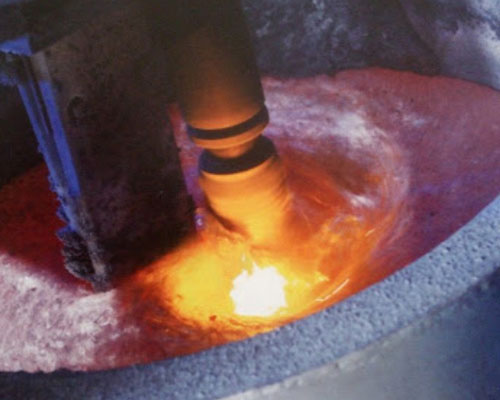
Degassing and Filtration
Depending on the product, the next critical operation may be the degasser. There are many different types of degassers, but most rely on rotating rotors. The rotor injects chemically active reactants (usually chlorine or solid salt fluxes) mixed with carrier gases (such as argon or nitrogen) into the molten metal in the form of tiny bubbles. The key to operating such equipment for optimal efficiency is the use of rotor design and practice, which produces smaller bubble sizes and longer bubble subsurface residence times.
AdTech online degassing unit adopts advanced high silicon melting technology to get a long service time, degassing rotor, heater protection thimble and thermocouple protection thimble adopt ceramic manufacturing technology which can meet producing high-precision aluminum requirements. The rotating rotor is made of SiN. Working life is 2-5 years. It performances well in corrosion resistance, heat shock resistance, oxidative resistance, abrasive resistance, mechanical strength. Shaft diameter 60mm, head diameter 200mm, which shall reduce resistance in stirring. Speed design 450-550 R/M will crush bubbles and disperse evenly into aluminum. It is cost-effective during long time usage.
AdTech CFF Filtration is used for the filtering and purifying of the molten aluminum, matching with the ceramic foam filter. It can filter the inclusions and tiny particles in the molten aluminum. Especially suit for the casting high purity aluminum and high precision aluminum alloy. It has advantages with thermal resistance, anti-oxidation, corrosion resistance, warming up quickly, long lifetime and acid resistance.

